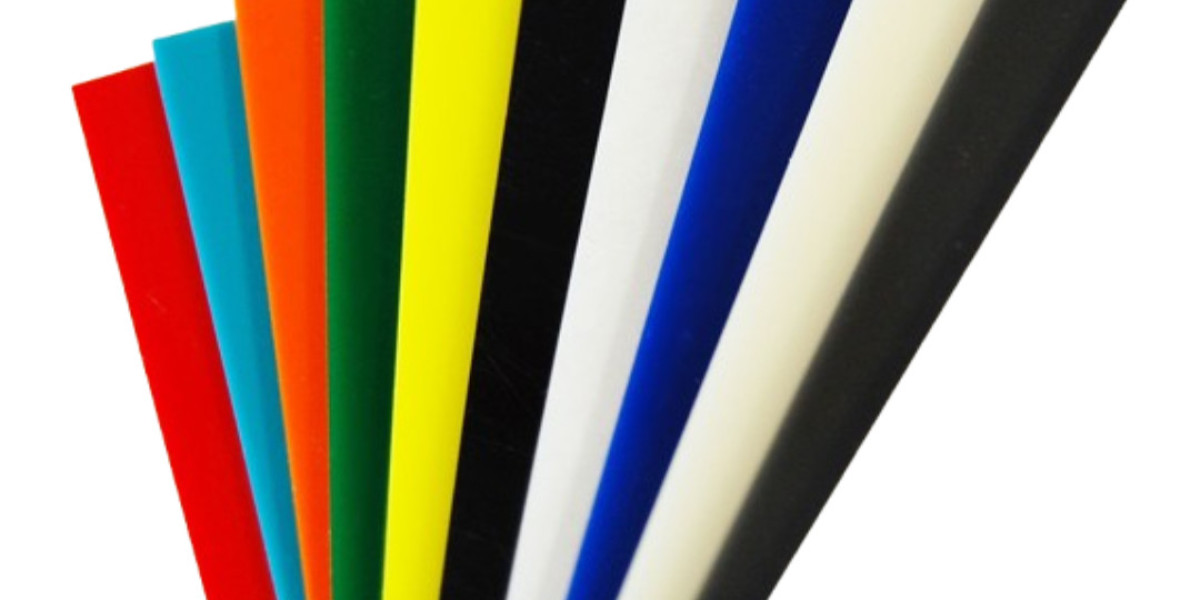Vacuum forming is a widely used technique in the manufacturing and production industries. It allows for the creation of plastic parts and products that are used across a variety of sectors, from automotive and aerospace to packaging and medical devices. One of the most essential materials used in this process is vacuum form plastic sheets, which play a crucial role in shaping products into their final forms. These plastic sheets are known for their versatility, durability, and cost-effectiveness, making them a popular choice among manufacturers and designers.
In this article, we will delve deeper into the versatility and benefits of Vacuform plastic sheets, exploring why they are so commonly used, how they are produced, and the many advantages they bring to a range of industries. We will also discuss the importance of finding reputable vacuum forming plastic sheet suppliers and how their products can support high-quality manufacturing processes.
What Are Vacuum Form Sheets?
Vacuum form plastic sheets are flat sheets made from a variety of plastic materials that are used in the vacuum forming process. This process involves heating the plastic sheet until it becomes soft and pliable, then using a vacuum to pull the heated sheet over a mold. As the vacuum is applied, the plastic sheet conforms to the shape of the mold, hardening as it cools and solidifies into the desired shape.
The plastic used in vacuum forming can vary, with common materials including ABS (Acrylonitrile Butadiene Styrene), PVC (Polyvinyl Chloride), PETG (Polyethylene Terephthalate Glycol), and polystyrene. These materials offer different properties, such as flexibility, impact resistance, and transparency, allowing manufacturers to choose the best option based on the specific needs of their project.
The Versatility of Vacuum Plastic Sheets
One of the key reasons why vacuum form plastic sheets are so popular is their versatility. The vacuum forming process can be used to create a wide range of products, from simple components to complex, detailed designs. The ability to work with different plastic materials means that manufacturers can tailor their products to specific requirements, whether they need lightweight, impact-resistant parts or clear, transparent designs.
Some of the industries that benefit from vacuum forming plastic sheets include:
Automotive: Vacuum forming is often used in the production of car parts, such as interior panels, trim pieces, and dashboards. The lightweight nature of the plastic sheets helps to reduce the overall weight of the vehicle, which can improve fuel efficiency.
Packaging: Many packaging solutions, such as clamshell packaging, blister packs, and trays, are made from vacuum form plastic sheets. These products offer excellent protection for goods during transportation and storage, and their transparent nature allows consumers to view the product inside.
Medical Devices: Vacuum forming is used in the creation of medical device housings, trays for medical instruments, and even disposable medical products. The materials used in vacuum forming are often chosen for their non-reactive properties, making them ideal for healthcare applications.
Consumer Goods: Household products, including electronic housings, appliance parts, and toys, can all be manufactured using Vacuum form plastic sheets. The flexibility and ease of production make them an excellent choice for mass production of consumer goods.
Benefits of Vacuum Form Sheet
Cost-Effective: Vacuum forming is a cost-efficient manufacturing method, particularly for low to medium production runs. The process requires relatively low tooling costs, which makes it an attractive option for manufacturers who need to produce parts in smaller quantities without incurring expensive molds and setup fees.
Quick Turnaround Times: Compared to other manufacturing techniques, such as injection molding, vacuum forming offers faster turnaround times. The ability to quickly produce prototypes or finished products is a significant advantage for companies that need to meet tight deadlines or adapt quickly to changing market demands.
Lightweight and Durable: Vacuum form plastic sheets are lightweight, which is particularly important for industries like automotive and aerospace. Despite their lightness, the materials used are also durable, offering long-lasting performance without compromising strength or reliability.
Customization: The vacuum forming process allows for a high degree of customization. Manufacturers can easily modify the thickness of the plastic sheet, adjust the size of the mold, or change the color and texture of the final product. This makes it easy to create products with unique specifications or aesthetic features.
Environmental Benefits: Many vacuum forming plastic sheets are made from recyclable materials, making them a more environmentally friendly option compared to other plastics. The recyclability of these materials can help reduce waste and lower the environmental impact of production.
Consistency: The vacuum forming process produces consistent, high-quality results, with minimal variation in each part. This is particularly important for industries that require precision and reliability, such as medical device manufacturing or electronics.
Choosing the Right Vacuum Form Plastic Sheet Suppliers
Selecting the right Vacuum forming plastic sheet suppliers is essential for ensuring that you receive high-quality materials that meet your specific requirements. A reputable supplier should offer a range of plastic materials to choose from, along with options for custom colors, thicknesses, and finishes. They should also have experience in working with a variety of industries and understand the unique demands of each sector.
When evaluating suppliers, consider factors such as their quality control processes, customer service, and delivery times. A reliable supplier will provide you with the necessary support to ensure that your vacuum forming projects run smoothly from start to finish. They should also be able to advise you on the best materials and processes for your specific applications.
Conclusion
Vacuum form plastic sheets offer a wide range of benefits, from versatility and cost-effectiveness to lightweight durability and environmental friendliness. They are used in a variety of industries, including automotive, packaging, medical devices, and consumer goods, to create high-quality products that meet the needs of both manufacturers and consumers.
Whether you are looking to produce a small batch of custom products or need to scale up for mass production, vacuum forming provides an efficient and reliable method for creating plastic parts and components. By working with trusted vacuum forming plastic sheet suppliers, manufacturers can ensure that they are getting the best materials for their projects, resulting in top-quality products that meet industry standards.
Frequently Asked Questions
What types of plastic materials can be used for vacuum forming?
Various types of plastic materials can be used in vacuum forming, including ABS, PVC, PETG, polystyrene, and polycarbonate. Each material has specific properties, such as flexibility, impact resistance, or transparency, making them suitable for different applications.How long does it take to produce a vacuum-formed product?
The production time for vacuum-formed products can vary depending on the complexity of the mold and the size of the batch. However, vacuum forming is generally faster than other manufacturing methods, such as injection molding, and can produce parts in a matter of hours or days.Can vacuum forming be used for both small and large production runs?
Yes, vacuum forming is highly versatile and can be used for both small and large production runs. It is particularly cost-effective for low to medium production volumes, but it can also be scaled up for larger runs if needed.







